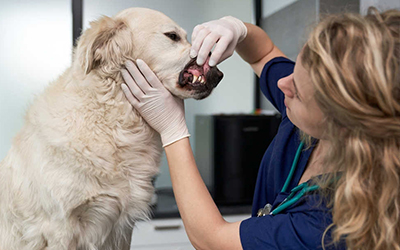Dental Health for Pets: Why It’s More Important Than You Think
 When it comes to caring for our pets, dental health is often overlooked. However, maintaining your pet’s dental hygiene is crucial for their overall well-being. Poor dental health can lead to serious health issues, including infections, tooth loss, and even heart disease. Understanding the significance of dental hygiene and implementing proper dental care can help ensure your pet lives a long, healthy, and happy life.
When it comes to caring for our pets, dental health is often overlooked. However, maintaining your pet’s dental hygiene is crucial for their overall well-being. Poor dental health can lead to serious health issues, including infections, tooth loss, and even heart disease. Understanding the significance of dental hygiene and implementing proper dental care can help ensure your pet lives a long, healthy, and happy life.
Tips for Maintaining Your Pet’s Dental Health
Maintaining your pet’s dental health involves a combination of professional cleanings and at-home care. Here are some tips to help you keep your pet’s teeth and gums healthy:
- Regular Veterinary Check-Ups: Schedule regular veterinary visits to monitor your pet’s dental health. Your vet can perform professional cleanings and check for any signs of dental disease. These check-ups are vital for early detection and prevention of dental problems.
- Professional Cleanings: Just like humans, pets benefit from professional dental cleanings. These cleanings, performed by your vet, help remove plaque and tartar buildup that cannot be removed by brushing alone. Depending on your pet’s needs, these cleanings may be recommended annually or more frequently.
- Daily Brushing: Brushing your pet’s teeth daily is one of the most effective ways to prevent dental disease. Use a pet-specific toothbrush and toothpaste, as human toothpaste can be harmful to pets. Start slowly, allowing your pet to get used to the process, and gradually increase the brushing time.
- Dental Chews and Toys: Provide your pet with dental chews and toys designed to promote oral health. These products can help reduce plaque and tartar buildup while satisfying your pet’s natural chewing instincts. Look for products approved by veterinary dental organizations for added assurance.
- Healthy Diet: Feeding your pet a balanced diet contributes to their overall health, including dental health. Some pet foods are specifically formulated to reduce plaque and tartar buildup. Consult your vet for recommendations on the best diet for your pet’s dental needs.
- Regular Inspections: Perform regular inspections of your pet’s mouth to check for signs of dental issues. Look for red, swollen, or bleeding gums, broken or loose teeth, and any unusual lumps or bumps. If you notice any of these signs, contact your vet immediately.
- Water Additives: There are water additives available that can help reduce plaque and tartar buildup. These additives can be an easy way to support your pet’s dental health, especially if they are resistant to brushing. Be sure to choose products specifically designed for pets.
Conclusion
Maintaining your pet’s dental health is crucial for their overall well-being and longevity. Regular veterinary check-ups, professional cleanings, and consistent at-home care are essential components of a comprehensive dental care routine. By prioritizing your pet’s dental hygiene, you can prevent serious health issues and ensure they lead a happy, healthy life.
For professional veterinary services and comprehensive dental care for your pets, visit Millcreek Veterinary Clinic in Mississauga. Our team is dedicated to providing the highest level of care for your pet’s health and well-being.

